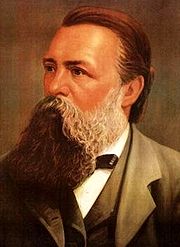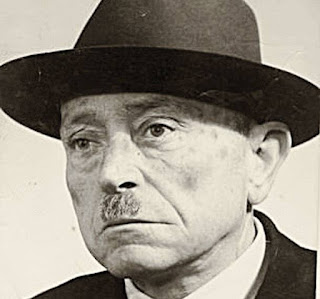Friedrich Engels was born in Barmen, Kingdom of Prussia, on 28 November 1820. He was a a German philosopher
, social scientist
, journalist
and businessman
. His father was an owner of a large textile factory in Salford
, England
.
Engels founded Marxist theory together with Karl Marx and in 1845 published The Condition of the Working Class in England, based on personal observations and research in Manchester. In 1848, Engels co-authored The Communist Manifesto with Marx and also authored and co-authored (primarily with Marx) many other works. Later, Engels supported Marx financially to do research and write Das Kapital. After Marx's death, Engels edited the second and third volumes. Additionally, Engels organised Marx's notes on the Theories of Surplus Value, which he later published as the "fourth volume" of Capital.
After Marx's death, Engels devoted much of his remaining years to editing Marx's unfinished volumes of Capital. However, he also contributed significantly in other areas. Engels made an argument using anthropological evidence of the time to show that family structures changed over history, and that the concept of monogamous marriage came from the necessity within class society for men to control women to ensure their own children would inherit their property. He argued a future communist society would allow people to make decisions about their relationships free of economic constraints. One of the best examples of Engels's thoughts on these issues are in his work The Origin of the Family, Private Property and the State.
Fredrich Engels died of throat cancer in London on 5 August 1895, at age 74. Following cremation at Woking Crematorium, his ashes were scattered off Beachy Head, near Eastbourne as he had requested.
 |
Friedrich Engels (1820-1895)
|
 |
THE PRINCIPLES OF COMMUNISM (1847)
|
 |
| THE HOLY FAMILY (1845) |
 |
| ON RELIGION (1955) |






Σχόλια
Δημοσίευση σχολίου